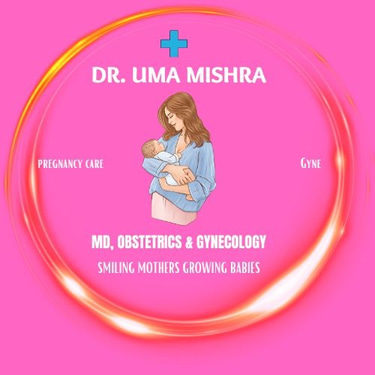The Crucial Role of Vitamin D During Pregnancy: Nurturing Health From Conception to Birth
Discover the importance of Vitamin D in supporting fetal skeletal development, immune system health, and the regulation of calcium and phosphorus metabolism. Uncover the recommended levels of Vitamin D during pregnancy, as outlined by the Institute of Medicine, and explore the significance of maintaining optimal serum Vitamin D levels for both maternal and fetal well-being. Delve into the unique challenges of high-risk pregnancies and understand how Vitamin D may mitigate risks associated with gestational diabetes, preeclampsia, and preterm birth. Our guide provides insights into the latest research linking Vitamin D to improved pregnancy outcomes and enhanced maternal health. Dr Uma Mishra, Best Gynecologist in Noida explains.
Dr Uma Mishra, Gynecologist
2/20/20243 min read


The Crucial Role of Vitamin D During Pregnancy: Nurturing Health From Conception to Birth
Pregnancy is a transformative period in a woman's life, marked by the intricate dance of physiological changes necessary for fetal development. Among the essential nutrients required for a healthy pregnancy, Vitamin D stands out as a key player. In this comprehensive exploration, we delve into the importance of Vitamin D during pregnancy, examining the recommended levels, its utilization in high-risk pregnancies, and the natural sources that can ensure an adequate supply.
The Importance of Vitamin D During Pregnancy:
1. Fetal Skeletal Development:
Vitamin D plays a pivotal role in the development of the fetal skeletal system, aiding in the absorption of calcium and phosphorus for the formation of healthy bones and teeth.
2. Immune System Support:
Adequate Vitamin D levels contribute to a robust immune system, benefiting both the mother and the developing fetus. It helps protect against infections and supports overall maternal and fetal health.
3. Regulation of Calcium and Phosphorus Metabolism:
Vitamin D regulates the metabolism of calcium and phosphorus, critical for the development of the baby's bones and teeth. This regulation ensures the proper mineralization of the fetal skeleton.
4. Maternal Health:
Maintaining optimal Vitamin D levels is crucial for the mother's health during pregnancy. It supports cardiovascular health, helps regulate insulin levels, and may reduce the risk of certain pregnancy complications.
Recommended Levels of Vitamin D During Pregnancy:
1. The Institute of Medicine (IOM) Recommendations:
The IOM recommends a daily intake of 600 international units (IU) of Vitamin D for pregnant women, with an increase to 800 IU for those over the age of 70. These recommendations aim to ensure optimal fetal development and maternal health.
2. Serum Vitamin D Levels:
Blood tests measuring serum 25-hydroxyvitamin D [25(OH)D] levels are used to assess Vitamin D status. The optimal serum level during pregnancy is generally considered to be 30 ng/mL or higher.
3. Individualized Supplementation:
Based on individual circumstances, healthcare providers may recommend Vitamin D supplementation to meet the specific needs of pregnant women. This is particularly important for those with limited sun exposure or other risk factors.
Vitamin D in High-Risk Pregnancies:
1. Gestational Diabetes:
Research suggests a link between Vitamin D deficiency and an increased risk of gestational diabetes. Adequate supplementation may contribute to better glucose metabolism during pregnancy.
2. Preeclampsia:
Some studies indicate that sufficient Vitamin D levels may play a role in reducing the risk of preeclampsia, a potentially serious condition characterized by high blood pressure during pregnancy.
3. Preterm Birth:
Vitamin D deficiency has been associated with an increased risk of preterm birth. Addressing Vitamin D insufficiency may contribute to a lower risk of premature labor.
Natural Sources of Vitamin D During Pregnancy:
1. Sun Exposure:
The skin produces Vitamin D in response to sunlight. Spending about 10-30 minutes in the sun, a few times a week, can contribute to sufficient Vitamin D synthesis. However, factors such as skin type, latitude, and sunscreen use can impact this process.
2. Fatty Fish:
Fatty fish such as salmon, mackerel, and trout are excellent natural sources of Vitamin D. Including these in the diet can provide essential nutrients for both the mother and the developing baby. Some of the sea fishes are high in mercury content and are not recommended as diet during pregnancy. Ask your Gynecologist specifically if you want to include sea food or sea fish in your Diet.
3. Fortified Foods:
Many foods, including dairy products, orange juice, and cereals, are fortified with Vitamin D. Checking food labels for fortification can be beneficial, especially for those with dietary restrictions.
4. Egg Yolks:
Egg yolks contain small amounts of Vitamin D. Incorporating eggs into the diet can contribute to overall Vitamin D intake.
Thus, recognizing the critical role of Vitamin D is paramount. From supporting fetal skeletal development to reducing the risk of complications in high-risk pregnancies, this essential nutrient plays a multifaceted role. Healthcare providers, armed with the knowledge of recommended levels and the potential benefits of Vitamin D, can guide expectant mothers towards a healthier and more informed pregnancy journey. Whether obtained through sunlight, natural dietary sources, or supplements, ensuring adequate Vitamin D levels is a foundational step towards nurturing the health and well-being of both mother and child.
Dr Uma Mishra is one of the most trusted Gynecologists in India. You can consult her for Obstetrics or Gynecological Issues- Online or offline at clinic. Call 8130550269 to book consult.
